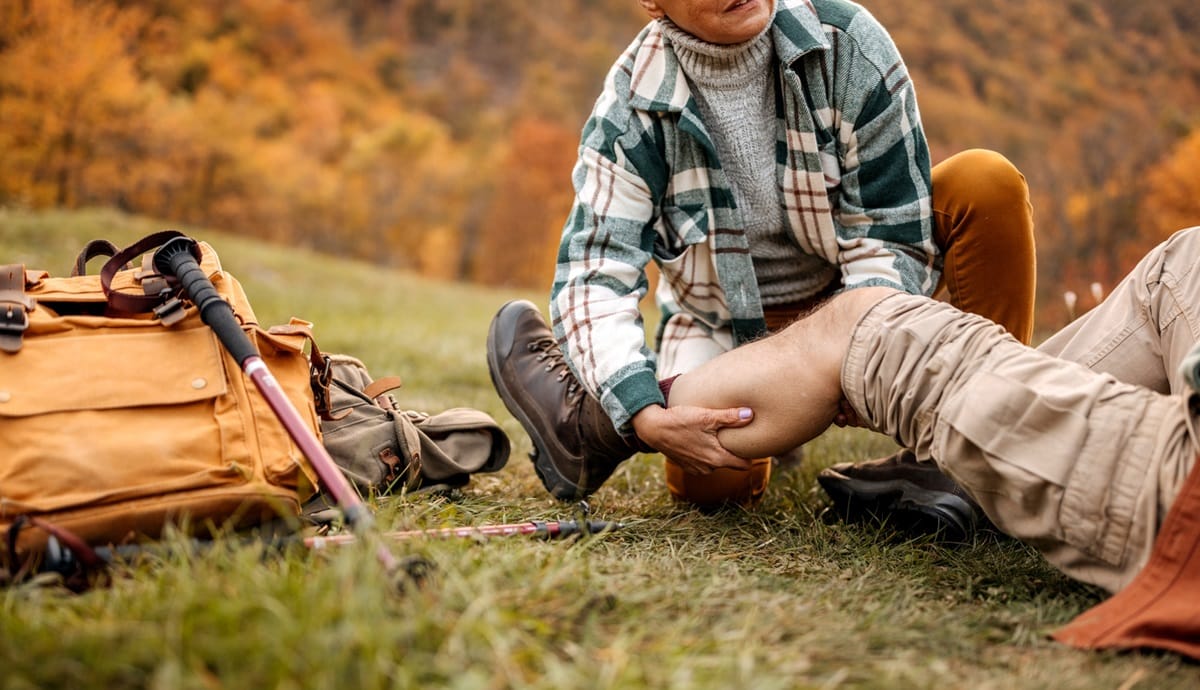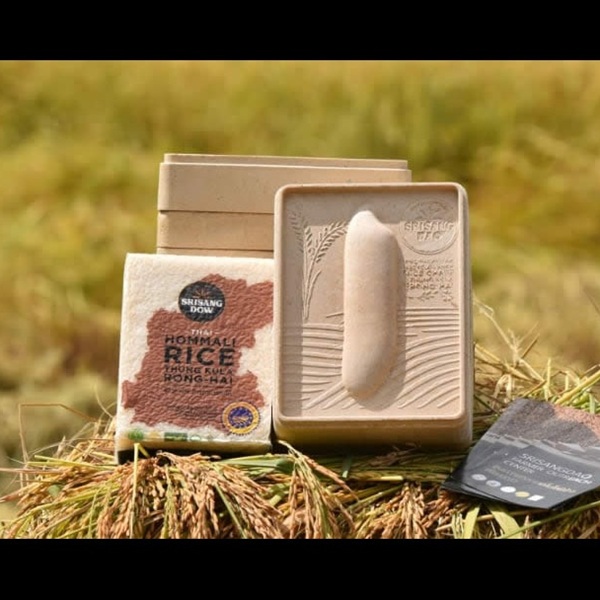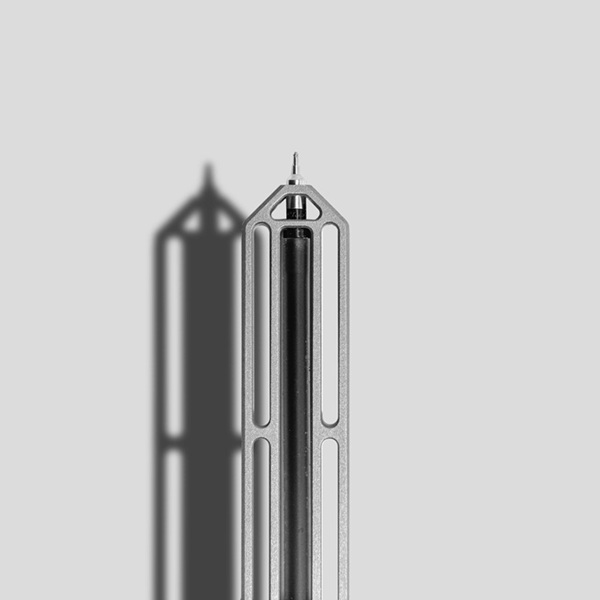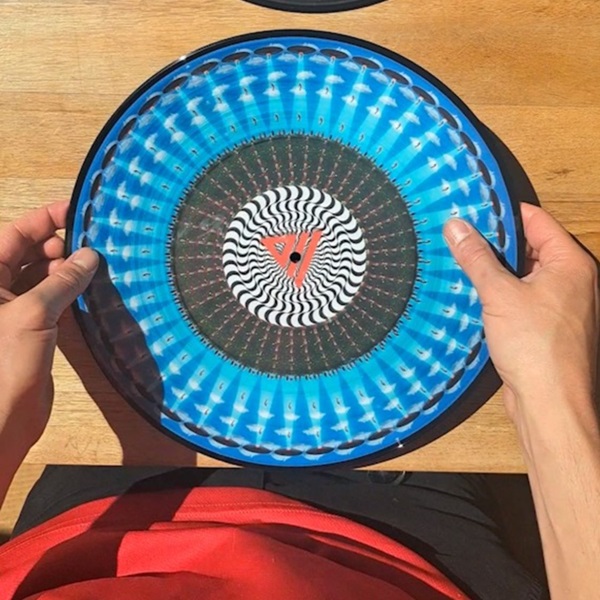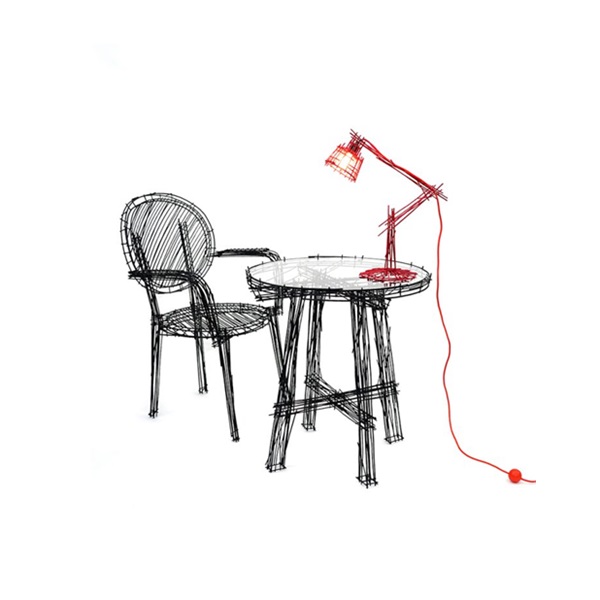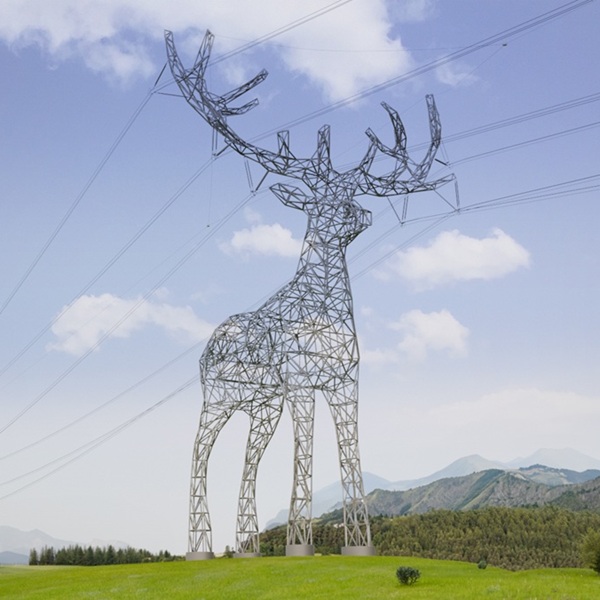
In our daily lives, we may face difficulties or injuries. Even if we plan every second of our camping trip, the unexpected can happen. Whether it is a minor cut, a sprained ankle, or something more serious, you should be prepared with knowledge of first aid while camping to make a difference.
In the wilderness, you may not have access to medical help immediately. Therefore, you should know how to respond quickly and correctly. Simple mishaps can escalate without the proper care, but with the right first aid skills, you can handle injuries calmly and prevent them from worsening. In short, first aid while camping ensures your adventure stays safe and lets you enjoy nature with peace of mind.
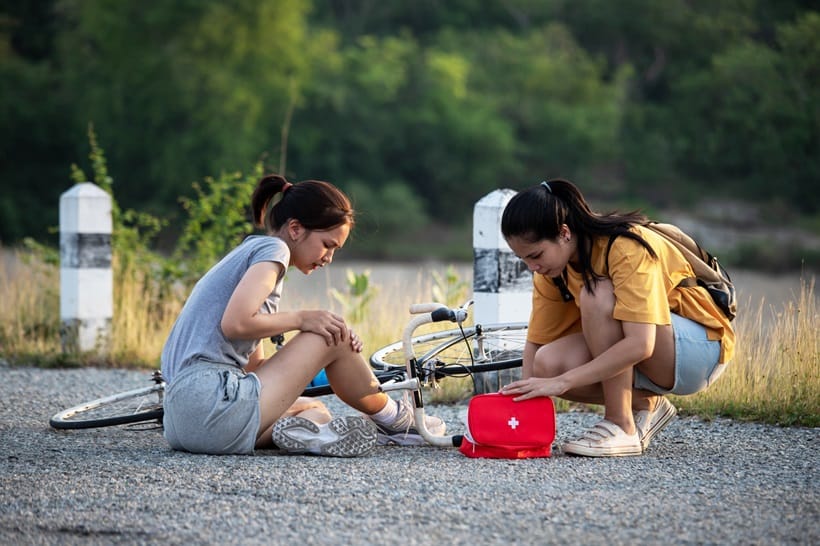
Camping First Aid Kit Lits
Are you a camper? Then, you should have a well-stocked first aid kit. Yes, no one plans for injuries. But it is important to be prepared for any situation that could arise in the outdoors. Always remember that a camping first aid kit is your first line of defense when medical help is away. With a well-prepared kit, you can treat minor wounds, prevent injections, and stabilize more serious injuries until professional assistance is available.
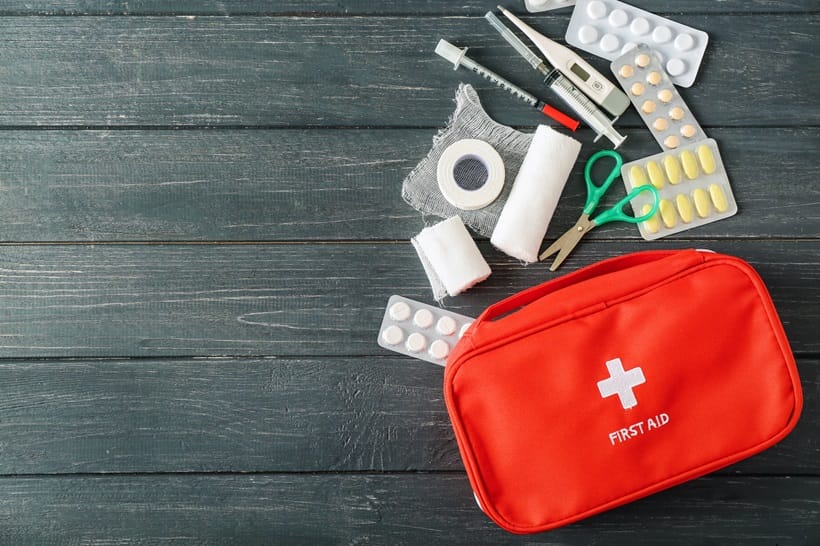
Below you can find a list of first aid kit you should get for your camping trips:
Adhesive Bandages (Various Sizes)
For covering minor cuts, blisters, or scrapes, keeping them clean and protected from dirt.
Antiseptic Wipes
To clean wounds and prevent infections, an essential step in first aid while camping.
Gauze pads and medical tape
For covering larger wounds or deep cuts, gauze helps stop bleeding, while medical tape keeps it securely in place.
Elastic Bandages
Useful for sprains and strains, elastic bandages provide support and help reduce swelling.
Tweezers
For removing splinters, ticks, or other small debris from the skin.
Scissors
Essential for cutting bandages, tape, or clothing in case of an emergency.
Antibiotic Ointment
To prevent infection on cuts, scrapes, or burns and promote healing.
Pain Relievers (Ibuprofen or Acetaminophen)
Helps manage pain from headaches, muscle soreness, or minor injuries.
Hydrocortisone Cream
Relieves itching and discomfort from bug bites, rashes, or allergic reactions.
Instant Cold Packs
Reduces swelling and numbs pain for sprains, strains, or bruises.
Alcohol Pads
Used for disinfecting tools like tweezers or cleaning wounds when other solutions aren’t available.
Emergency Blanket
It helps prevent shock and hypothermia by keeping the body warm in emergency situations.
CPR Mask
For performing safe mouth-to-mouth resuscitation in the event of an emergency.
Safety Pins
Useful for securing bandages or creating slings for injured arms.
First Aid Manual
A quick reference guide for handling injuries in the field, especially if you’re unsure of the next steps in first aid while camping.
The Most Common Camping Accidents
Common camping injuries can happen unexpectedly, no matter how careful you are. From minor scrapes to more serious injuries, it is important to know how to handle them effectively with first aid while camping.
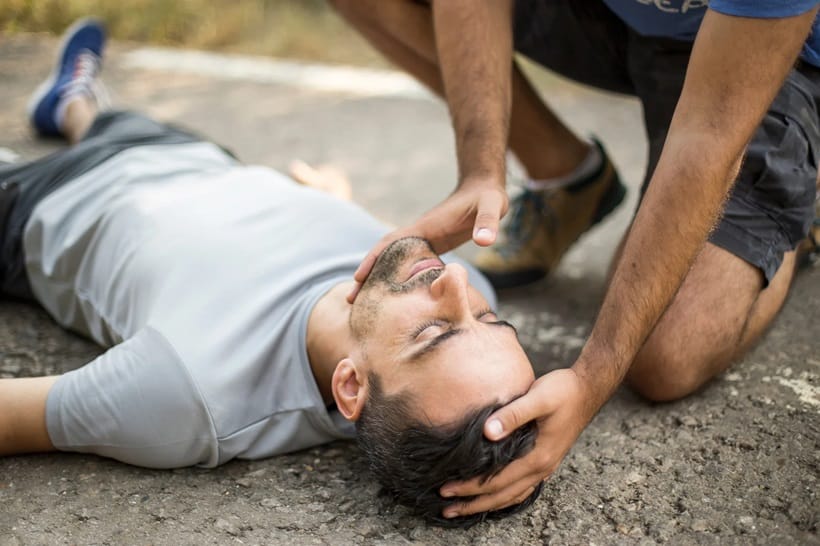
Quick and correct responses can prevent minor injuries from worsening or becoming infections. Below, you can check the most common camping injuries and first aid practices.
Cuts and scrapes
Sharp rocks, branches, or even cooking tools can lead to minor cuts or scrapes.
First Aid: Clean the wound immediately with antiseptic wipes to prevent infection. Apply an antibiotic ointment, and cover it with a bandage or gauze pad secured with medical tape.
Sprains and Strains
Twisting an ankle or overstretching a muscle can happen during hikes or around camp.
First Aid: Wrap the injured area with an elastic bandage for support and reduce swelling by applying an instant cold pack. Elevate the injured area and rest it as much as possible until help arrives.
Burns
Burns from campfires, cooking stoves, or hot liquids are common in camping settings.
First Aid: Cool the burn by rinsing it with clean, cold water for at least 10 minutes. Apply a sterile gauze pad to protect the burn, but avoid using ointment or creams until you consult a medical professional.
Insect Bites and Stings
Insect bites can cause swelling, itching, or allergic reactions, especially from bees or ticks.
First Aid: Remove any stinger with tweezers or scrape it off with a flat object. Clean the area with antiseptic wipes, and apply hydrocortisone cream to reduce swelling and itching. If allergic reactions occur, use an emergency antihistamine if available.
Blisters
Blisters often result from friction, especially on long hikes.
First Aid: Clean the blister with an alcohol pad and cover it with a padded adhesive bandage to prevent further irritation. If the blister pops, treat it as you would a cut: clean, apply antibiotic ointment, and cover with a sterile gauze pad.
Understanding how to respond to these injuries with first aid while camping can make a big difference in how your trip unfolds, keeping everyone safer and more comfortable until proper medical care is available.
When to Seek Professional Care
While first aid for camping injuries can handle most minor accidents, there are times when professional care is necessary. To prevent complications or long-term damage, you should know when to perform first aid while camping and seek professional help.
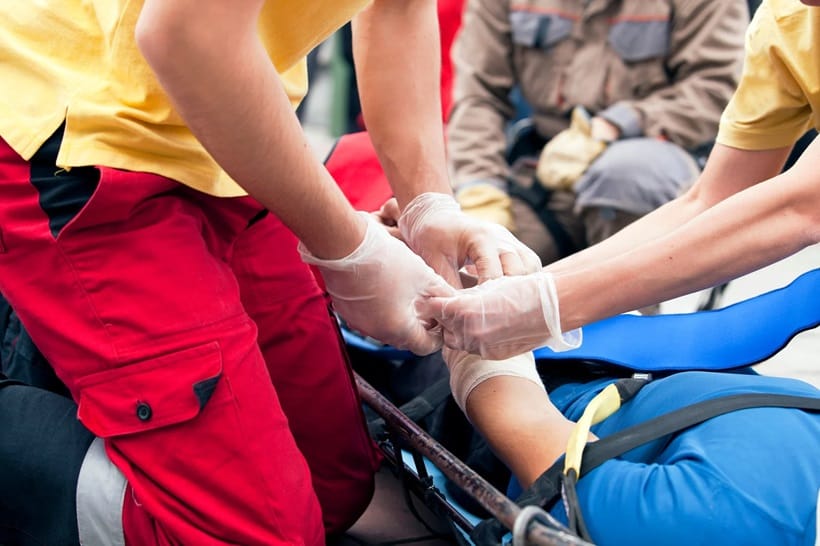
Even if you treat the injury with a basic camping first aid kit, some situations, like severe injuries, allergic reactions, or symptoms that worsen over time, require professional care.
Cases you should seek for professional care can be summarized as follows:
- If the bleeding does not stop after applying pressure for 10 minutes or if it is spurting, seek medical help immediately.
- If a wound becomes red, swollen, hot, or starts oozing pus, it may be infected. Infections can quickly spread and require antibiotics from a healthcare professional.
- If there is an obvious deformity, severe swelling, or inability to move a limb, professional care is needed.
- Burns that cover a large area, blister significantly, or penetrate deep layers of the skin require urgent medical attention.
- Any head injury followed by confusion, loss of consciousness, or persistent headaches should be examined by a professional.
- If someone experiences difficulty breathing, swelling of the face or throat, or dizziness after a sting or bite, immediate care is essential.
- If pain or swelling from a sprain or strain doesn’t improve with basic first aid for camping injuries, it could indicate a more serious problem that needs attention.

